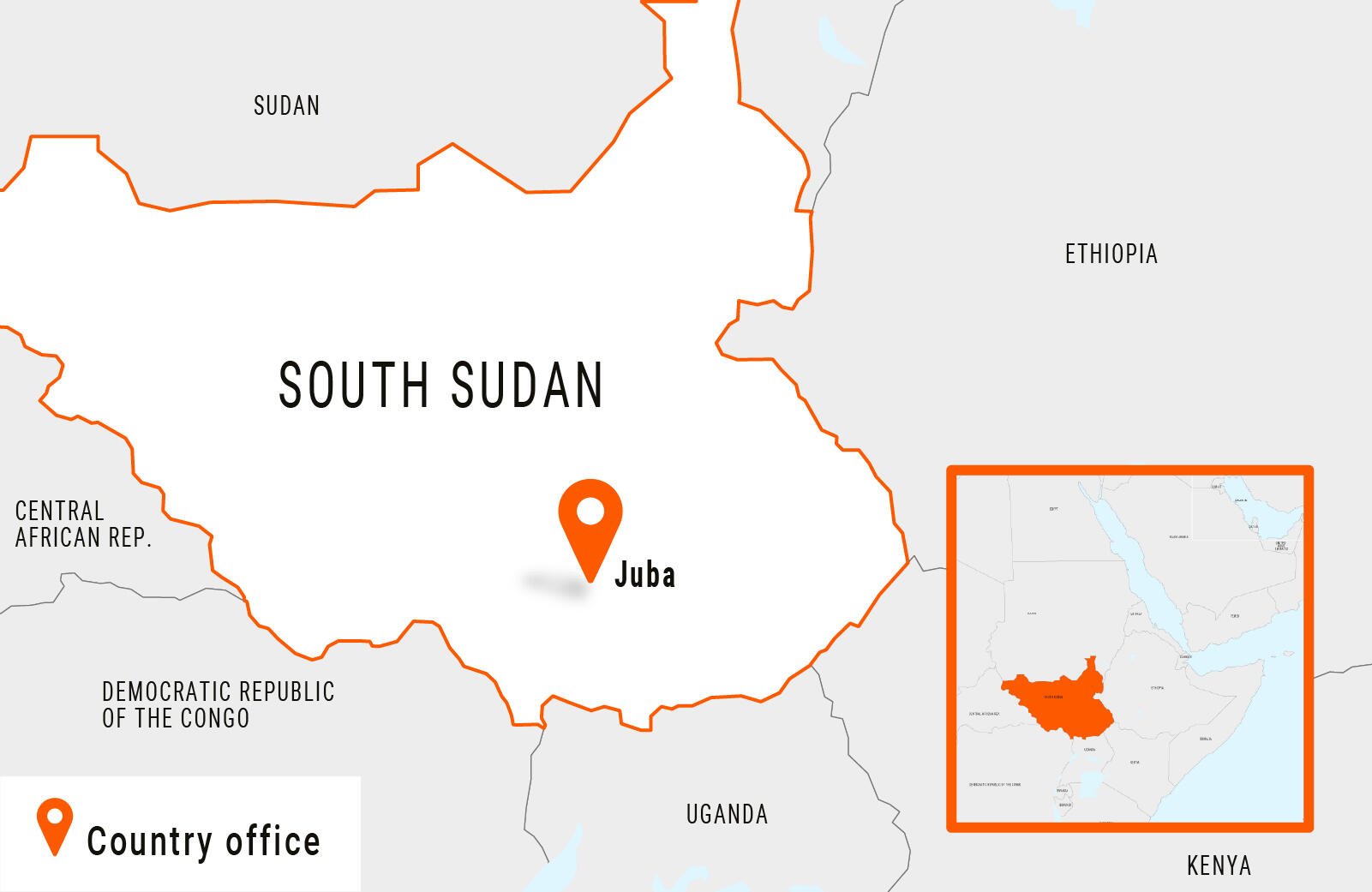This is one of the most dangerous countries in the world for aid workers. But despite the risks, the Norwegian Refugee Council (NRC) is on the ground, helping families access food, clean water and shelter, as well as vital education and legal advice.
What’s happening in South Sudan?
South Sudan is the world’s newest country. It gained independence from Sudan in 2011 in a move to end Africa’s longest-running civil war. Yet conflict in Sudan since April 2023 has driven hundreds of thousands of refugees and returnees across the border – with hundreds more crossing every day.
In South Sudan, they face food shortages, economic turmoil, a lack of basic services and the ever-increasing challenges of climate change. Large areas of Jonglei, Northern Bahr el Ghazal and Unity states are now flooded and poor living conditions in these areas contribute to malnutrition, waterborne diseases and malaria.
Three quarters of South Sudan’s population are now in urgent need of humanitarian assistance and protection. Gender-based violence and significant human rights violations remain widespread across the country. And it’s estimated that at least 57 per cent of the population will face acute food insecurity in 2025 – with young children and people who are forced to flee their homes suffering the most from hunger and malnutrition.

Region: East Africa
Population: 11.3 million
Total displaced: 3.4 million
Refugees hosted: 386,107
This is one of the most dangerous countries in the world for aid workers. But despite the risks, the Norwegian Refugee Council (NRC) is on the ground, helping families access food, clean water and shelter, as well as vital education and legal advice.
What’s happening in South Sudan?
South Sudan is the world’s newest country. It gained independence from Sudan in 2011 in a move to end Africa’s longest-running civil war. Yet conflict in Sudan since April 2023 has driven hundreds of thousands of refugees and returnees across the border – with hundreds more crossing every day.
In South Sudan, they face food shortages, economic turmoil, a lack of basic services and the ever-increasing challenges of climate change. Large areas of Jonglei, Northern Bahr el Ghazal and Unity states are now flooded and poor living conditions in these areas contribute to malnutrition, waterborne diseases and malaria.
Three quarters of South Sudan’s population are now in urgent need of humanitarian assistance and protection. Gender-based violence and significant human rights violations remain widespread across the country. And it’s estimated that at least 57 per cent of the population will face acute food insecurity in 2025 – with young children and people who are forced to flee their homes suffering the most from hunger and malnutrition.
Our response
We’re working with our partners in the following areas:
- Water, sanitation and hygiene – ensuring homes, schools and communities have safe drinking water and adequate sanitation and hygiene facilities.
- Shelter and settlements – providing emergency shelters and household items, as well as constructing and renovating schools.
- Protection from violence – coordinating protection services, empowering communities to stay safe and assisting those most at risk of violence or harm.
- Livelihoods and food security – delivering emergency food supplies, providing cash assistance and encouraging climate-smart agricultural practices.
- Education – distributing learning materials and running formal and non-formal learning programmes to help children continue with their studies.
- Information, counselling and legal assistance – helping people obtain legal and civil documentation and claim their housing, land and property rights.
Our operations
NRC office established: 2011
Areas of operation: Aweil (Northern Bahr el Ghazal State), Alek (Warrap State), Wau (Western Bahr el Ghazal State), Akobo, Bor, Twic East and Duk (Jonglei State), Mayom/Mankien, Koch and Leer (Unity State), Juba and Kajo Keji (Central Equatoria State)
Country Director: Kennedy Mabonga
Contact: kennedy.mabonga@nrc.no

Our impact
In 2023, we assisted 949,952 people through our programmes in South Sudan:
-
107,971Education
-
328,688Livelihoods and food security
-
126,215Shelter and settlements
-
29,252Protection from violence
-
39,086Information, counselling and legal assistance
-
371,103Water, sanitation and hygiene
-
110,062Other activities
Note: some people received more than one type of assistance.








